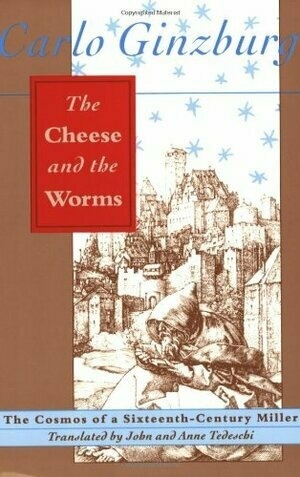
The Cheese and the Worms is a study of the popular culture in the sixteenth century as seen through the eyes of one man, a miller brought to trial during the Inquisition. Carlo Ginzburg uses the trial records of Domenico Scandella, a miller also known as Menocchio, to show how one person responded to the confusing political and religious conditions of his time. For a common miller, Menocchio was surprisingly literate. In his trial testimony he made references to more than a dozen books, including the Bible, Boccaccio's Decameron, Mandeville's Travels, and a "mysterious" book that may have been the Koran. And what he read he recast in terms familiar to him, as in his own version of the creation: "All was chaos, that is earth, air, water, and fire were mixed together; and of that bulk a mass formed—just as cheese is made out of milk—and worms appeared in it, and these were the angels."